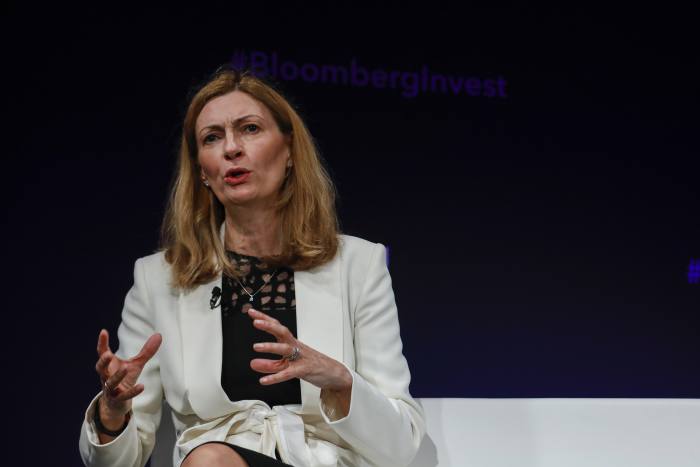
Fidelity International’s chief executive has said it is “thinking about” non-fungible tokens (NFTs) and that the metaverse “could be very transformative” for the wider asset management industry.
Speaking at City Week 2022 last week (April 27), Dame Anne Richards said over the next three to five years, Fidelity will be looking at how it can make intangible assets - such as NFTs - more tangible and build portfolios around them.
She said: “How can we take advantage of technology which allows us to make really illiquid stuff more liquid? For example, through tokenisation of big real assets.
“And how can we build portfolios around them for things which take intangible assets and make them more tangible? NFTs is an example of that, but there are others."
Richards added: “From an investment point of view, we are opening up a much broader range of things that can be made investable. That's some of the things that we're thinking about and the journeys that we're on over the coming three to five years.”
An NFT is a digital artwork that uses blockchain technology to prove ownership. Last year, nearly $41bn was spent on NFTs.
The trend became popularised in March, when artist Beeple sold a collage for $69.3mn at Christie’s. But the new, unregulated market does not come without its risks.
There was some $2mn of suspect activity across the CryptoPunk and Bored Ape NFT collections in the 30 days to mid-December, according to blockchain data analytics firm Nansen.
At City Week, Richards not only highlighted the work Fidelity was doing to make NFTs more tangible for investors, she also pointed to the “transformative” benefits of the metaverse.
Defined by JPMorgan, which recently entered the metaverse, it is a “seamless convergence of our physical and digital lives”.
By 2026, 30 per cent of organisations around the world are anticipated to have products and services ready for metaverse, according to a study by Gartner.
Richards argued that the hyper personalisation of advice, guidance, and nudging to get clients engaged with financial decisions is something that most firms find “really difficult” until they the consumer has to make a critical decision.
“There's an awful lot that we can learn from other industries about helping people make those decisions,” said Richards.
“And when you think about things as radical as the metaverse, there are very different ways - particularly with younger generations - to engage with the online world that we can take advantage of.
“So I think hyper personalisation, metaverse, all of those things could be very transformative in that front-end engagement piece, which we as an industry really need.”
ruby.hinchliffe@ft.com





